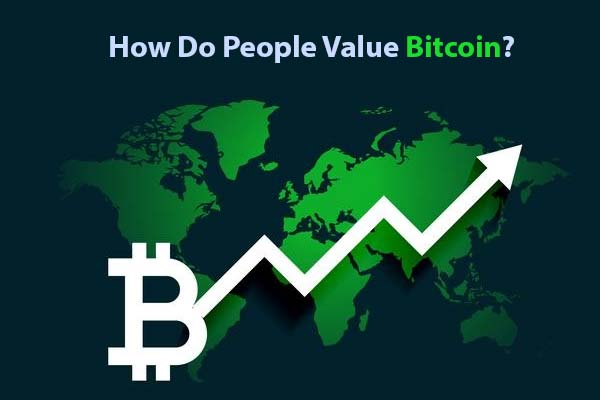Are you wondering how people value Bitcoin, yet it lacks an intrinsic value? If so, here’s how people determine Bitcoin’s worth.
You’ve probably heard that Bitcoin doesn’t have an intrinsic value. Maybe this has prompted you to wonder what gives it value. Since its inception, this digital currency has continued to increase its value. For instance, Bitcoin hit the $1,000 mark in 2017 and broke this record with an all-time high price exceeding $65,000 in 2021. This massive growth has drawn attention from investors, traders, regulators.
El Salvador is among the first countries to embrace this currency as a legal tender. At the same time, China outlawed Bitcoin, meaning people can’t use it legally within its borders. However, this country introduced a digital Yuan that people purchase and sell on Bitcoin robot. And this platform is the only legal distributor of this virtual currency.
But Bitcoin continues to gain popularity, acceptance, and usage globally despite these challenges. At the same time, some people hesitate to accept or invest in Bitcoin because it lacks an intrinsic value.
Understanding Intrinsic Value
Intrinsic value refers to the worth of a commodity itself. Thus, an item has an intrinsic value if it doesn’t need an additional source to prove its worth. For instance, sugar’s inherent value is sweetness. And this intrinsic value is the reason people pay the price to acquire it.
People accept fiat money as a payment for services and goods in modern society because they understand that they can trade it again to acquire other services or goods. Also, some currencies have precious metals like silver and gold backing them due to their intrinsic value.
Today, most countries use fiat currencies. A commodity is valuable if people can exchange it with another item of a similar value. Also, the thing must hold or retain its value for future trading. And this value increases if the commodity has a limited supply because its demand rises too.
Valuing Bitcoin
Like most fiat currencies, Bitcoin doesn’t have the backing of any precious metal like silver and gold. Hence, Bitcoin doesn’t have an intrinsic value. Most fiat currencies have value because of the government’s approval and people’s trust. Therefore, money becomes an established value exchange method in a network if people trust it. Hence, people can have faith in cash as a value exchange regardless of who backs it.
And this explains how Bitcoin gains value. Millions of people trust Bitcoin as an investment and exchange medium. Today, many traders and miners trust Bitcoin as the leading digital currency globally. And these decide the value or price of this cryptocurrency based on its sole principle of demand and supply.
Understanding the crypto ecosystem requires comprehending the culture shift in the payment methods that Bitcoin and other virtual currencies are bringing into the world. Ideally, Bitcoin facilitates value exchange between parties without an intermediary. Today, people don’t need a bank to receive funds from a different continent. Instead, they can receive funds or value seamlessly using Bitcoin. This virtual currency has many benefits over traditional money and payment methods. For instance, Bitcoin transactions are faster, cheaper, and transparent. Thus, more people turn to Bitcoin for payment due to its benefits over conventional money.
Closing Thoughts
Monetary policies, inflation rates, and economic growth are typical of conventional currencies’ values. However, these don’t apply to Bitcoin because no government or central bank issues or backs this digital currency. Conversely, supply and demand is the primary factor influencing Bitcoin’s value. However, production cost, rewards to the miners, competing cryptocurrencies, governing regulations, and new developments affect Bitcoin’s value. Since its introduction, Bitcoin has continued to gain more weight. And this trend might continue as more people learn and love Bitcoin.
